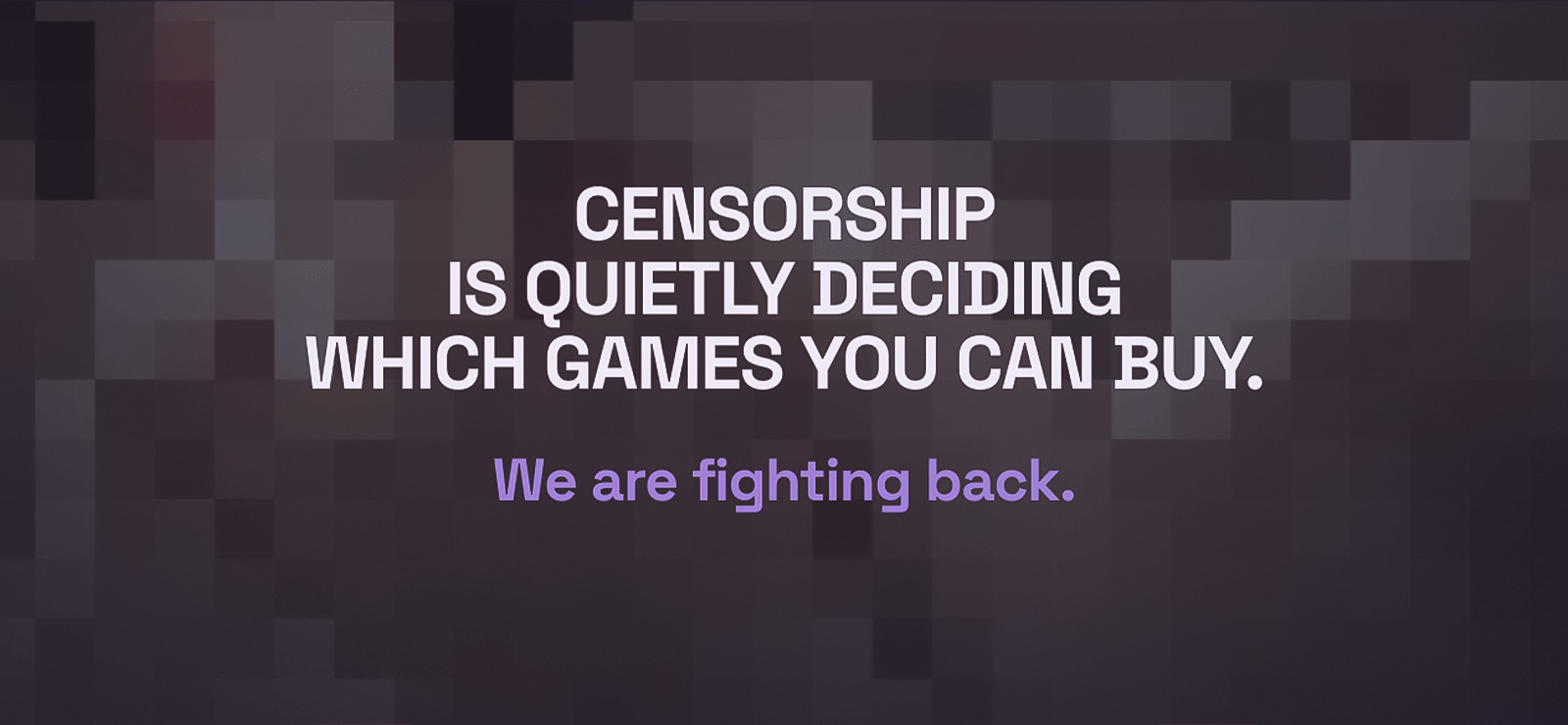GOG has launched a new platform offering 13 previously delisted games for free. This initiative, supported by participating publishers, aims to protest the unacknowledged removal of creative works from digital storefronts.
Available for a limited 48-hour period on FreedomToBuy.games, this giveaway primarily features sexually explicit titles recently removed from other digital stores. The site also invites developers and publishers to contribute their games to this protest.
GOG stated in their press release that, as a platform committed to preserving gaming history, they believe legal and responsibly developed games should remain accessible indefinitely.
They further elaborated that FreedomToBuy.games serves as a declaration: removing games due to discomfort makes their future revival significantly more challenging.
The controversy surrounding sexually explicit games began in July, when thousands of titles were suddenly removed from platforms like Steam and Itch.io. This action stemmed from pressure by payment processors, including Mastercard and Visa, to eliminate games with sexual content.
Payment processors were influenced by a campaign from Collective Shout, a conservative anti-pornography organization, which issued an open letter on July 11. Collective Shout reportedly targeted games depicting “rape, incest, and child sexual abuse,” urging its members to contact payment processors. Experts have labeled this approach “financial censorship,” leveraging financial institutions to bypass platform regulations and threaten merchants` operations. Consequently, hundreds of games were removed from Steam, and over 20,000 NSFW-tagged games were delisted from Itch.io (though Itch.io has since begun re-listing some if developers offer them for free).
The delistings immediately sparked a backlash, with many developers and players viewing it as payment processors overstepping by dictating adult content consumption. Several developers also reported their games were removed not for explicit pornography, but for featuring LGBTQ+ themes or addressing sensitive topics such as sexual abuse.
Both players and developers have used social media to pressure payment processors, advocating against perceived censorship. The International Game Developers Association (IGDA) issued a statement demanding “clear rules, fair warnings, and the right to appeal” in such scenarios, advising developers to contact Visa and Mastercard directly and support related petitions from the ACLU and Change.org.
Mastercard and Visa, in their respective statements, denied making moral judgments on partner merchandise, but hinted at potential legal issues underlying the removals.
Mastercard clarified that it does not evaluate games or impose restrictions on creator sites, contrary to some reports. The company stated its network adheres to legal standards, permitting all lawful purchases while requiring merchants to prevent its cards from being used for illegal content, including illegal adult material.
Visa echoed this sentiment to Polygon, stating it mandates “enhanced safeguards” for merchants deemed to carry an “elevated risk of illegal activity.”
Visa asserted it makes no moral judgments on legal consumer purchases and does not moderate merchant content or oversee specific goods during transactions. However, for legally operating merchants with an “elevated risk of illegal activity,” Visa requires enhanced safeguards from their supporting banks.
Notably, no specific claims of illegality have been publicly made regarding any of the delisted games.
The FreedomToBuy.games website itself opens with a statement that appears to directly challenge the legality argument.
“Some games vanish. Not because they broke the law but because someone decided they shouldn’t exist. For 48 hours, these games are free, because if a game is legal, you should be free to buy it.”

